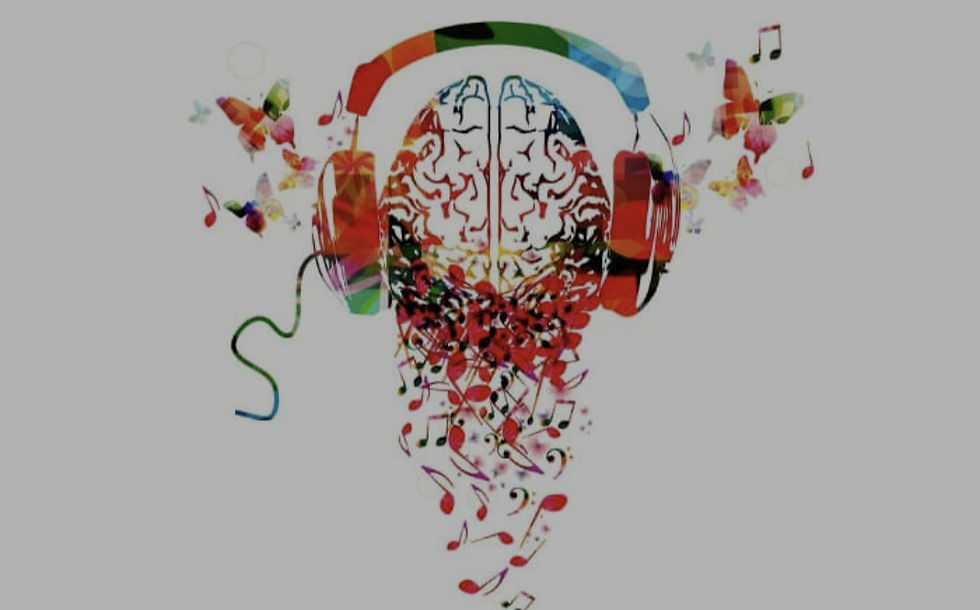Copy of Healing in Harmony: The profound connection between Music and Mental Health
- twenty4sevenlifest
- Jun 18, 2025
- 3 min read

In today’s fast-paced and often overwhelming world, finding ways to manage stress, anxiety, and depression is more crucial than ever. While therapy, medication, and mindfulness practices are well-known tools for mental wellness, there’s another powerful and accessible method often overlooked: music.
The Science of Sound
Research has consistently shown that music affects the brain in significant ways. Listening to music can stimulate the release of dopamine—a neurotransmitter associated with pleasure and reward. It can also lower cortisol levels, the hormone linked to stress.
Neuroscientists have found that different types of music activate various parts of the brain. Uplifting tunes can energize us, while calming melodies help reduce anxiety and promote relaxation. Music therapy, a clinical and evidence-based use of music interventions, is now a growing field used to treat mental health issues ranging from PTSD to depression and schizophrenia.

Music as Emotional Expression
For many, music is more than entertainment—it’s a lifeline. Writing, playing, or simply listening to music provides a healthy outlet for emotions that are difficult to express. People often say, “This song says what I feel,” because music has a unique way of articulating complex emotions that words alone can't capture.
A Personal Soundtrack for Self-Care
Creating personalized playlists or listening to your favourite music whilst dancing around the house, can be a form of self-care, consider prescribing yourself time to do this 3 times a week or whatever suits your schedule. Whether it's an energizing mix to start the day or a mellow set to unwind at night, the right music can dramatically shift mood and mindset. Many mental health apps now incorporate music, recognizing its power to soothe and inspire.
Music in Therapy and Recovery
Professional therapists often use music as a tool to reach individuals who struggle with traditional forms of communication. For example, veterans with PTSD have responded positively to drumming sessions, while individuals with dementia often reconnect with memories through familiar songs from their past.

The Power of Live Music and Community
Attending live music events offers something more than just good sound—it offers connection. Standing in a crowd of strangers, singing along to the same lyrics, and feeling the bass thump through your chest can create a powerful sense of unity and belonging.
For people struggling with isolation, anxiety, or depression, these shared experiences can be emotionally healing. Studies have shown that communal musical experiences increase feelings of social bonding and reduce loneliness. Whether it’s a stadium concert, a local open mic, or a spontaneous street performance, live music has a unique ability to bring people together and foster a sense of inclusion.
Final Note
Music isn’t a cure-all, but it can be a valuable companion on the journey toward mental wellness. So next time you're feeling overwhelmed or low, press play. The healing power of music might be just what you need.
If You're Struggling, You're Not Alone
While music can be a powerful tool for emotional support, it is not a substitute for professional help. If you or someone you love are struggling with mental health issues, please reach out to someone you trust or contact a qualified professional.
In the UK, you can speak to your GP, call Samaritans any time at 116 123, or consider speaking with a licensed psychotherapist. Support is available, and you deserve to receive it.

